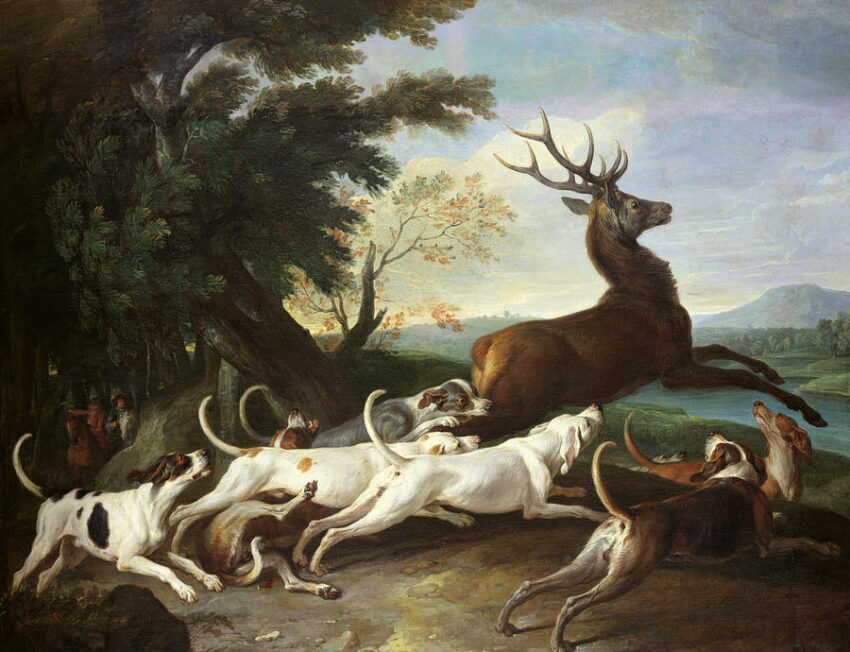In 1754, Jean Jacques Rousseau wrote Discourse on Inequality as his entry to a competition being held by the Academy of Dijon. Written in part to refute the claims of Locks and Hobbes on the nature of man and the state of nature, it was in this work that Rousseau first presented what is now known as “The Stag Hunt” game.
In Rousseau’s tale, a group of hunters have tracked a large stag. If the hunters work together in trapping the stag, they stand a good chance of harvesting stag meat for all, more meat, in fact, than if they worked independently hunting hares. The hunters hide and wait along the path for the stag. An hour goes by, with no sign of the stag. Two, three, four hours pass, with no trace. A day passes. The stag may not pass every day, but the hunters are reasonably certain that it will come. And then the hunters see a hare moving along the path. If a hunter leaps out and kills the hare, he and his family will eat, but the trap laid for the stag will be wasted and the other hunters will starve.
Therein lies the challenge – there is no certainty that the stag will arrive, and the hare is present, now. Further, there is a risk that one of the hunters loses patience and ruins the stag hunt for everyone by killing the hare and choosing a smaller payoff. In short, an individual hunter could provide food for himself, but the rest of the group would go hungry. Thus, at the heart of “The Stag Hunt” is the question of trust. In order to achieve maximum payoff, players must coordinate and trust one another to take the agreed to strategy. However, with a risk-free and independent strategy available, coordination may fail – perhaps, after all, one of the players/hunters does give in to hunger or impatience, satisfying his own needs at the expense of the greater good.
Before the science and field of Game Theory, Jean Jacques Rousseau hypothesized that the most optimal choice for both hunters would be to work together, because hunting the stag would produce the highest payout. Today, Rousseau’s tale has been modeled and explored for what it reveals about individuals and social cooperation, since “much of the benefit that people gain in society depends upon people cooperating and implicitly trusting one another to act in a manner corresponding with cooperation,” as said by Brian Skyrms, who continues with:
“In a larger sense, the whole problem of adopting or modifying the social contract for mutual benefit can be seen as a Stag Hunt. For a social contract theory to make sense, the state of nature must be an equilibrium. Otherwise there would not be the problem of transcending it. And the state where the social contract has been adopted must also be an equilibrium. Otherwise, the social contract would not be viable. If everyone takes the first course the social contract equilibrium is achieved; if everyone takes the second course the state of nature equilibrium results. But the second course carries no risk, while the first does. The problem of instituting, or improving, the social contract can be thought of as the problem of moving from riskless Hunt Hare equilibrium to the risky but rewarding Stag Hunt equilibrium.”
Thanks for reading!
